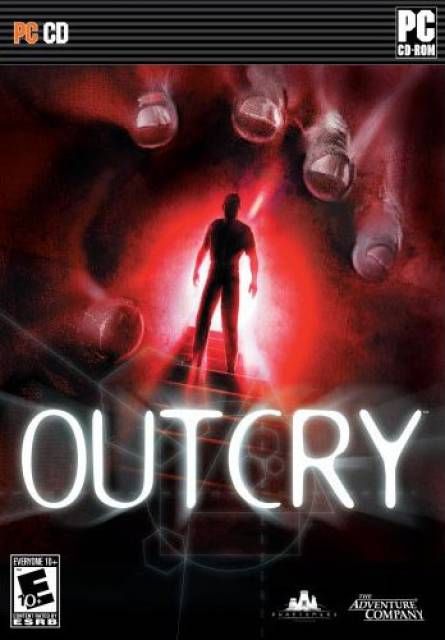More "Missed" Than "Myst"
Every genre of video games has at least one model, one bright, shining example of greatness that countless games afterwards will try to copy. First-person shooters have Doom, Quake, Halo, and Gears of War. Real-time strategy has Command & Conquer and StarCraft. Survival horror has Resident Evil and Silent Hill. Platformers have a number of games with "Mario" in the title. All great games that spawned countless copycats, some of which were great in their own rights, and some of which were considerably less so. Similarly, point-and-click adventure games have two basic molds that fit the vast majority of entries in the genre: the Secret of Monkey Island and Myst. Outcry is a game from the Adventure Company that falls squarely into the "like Myst" category.
The comparison between Outcry and the Myst series is most obvious in its presentation. The player is shown a picture of their character's surroundings, and interactive elements of the picture are indicated by a change in the cursor. Interactive elements include items that can be picked up, devices that can be manipulated, and pathways to other areas. Occasionally, a series of events will result in a cutscene that will momentarily take control away from the player, but these do not happen often never last more than a few seconds. At any time, the player can look around the character's surroundings in a 360 degree arc, a feature that was first introduced into the Myst series in the third game, Exile. However, traveling from one location to another does not play an animation that smoothly transitions the point of view, as in Exile, but a series of three intermediary photographs or drawings of the character's point of view as he travels to the new location. Although the sound in the game is standard for the genre and the music is appropriately atmospheric, there is nothing about this game's presentation to suggest that it was created more recently than seven years ago.
Superficially, Outcry's gameplay also seems to be taken right out of Myst's playbook. Pick up this object, use it with this environmental element, solve this puzzle, move on to the next area. Upon deeper inspection, however, the comparison falls apart, and not to Outcry's benefit. Paramount to the puzzles in the Myst series is simplicity. While the puzzles in those games aren't always easy, they are based on concepts that are easy to understand and based in common sense. A good number of Outcry's puzzles, however, require in-game reading - a lot of in-game reading. Topics range from botany to electrical engineering, and much of it is dry, seemingly purposefully so. This makes solving puzzles considerably more tedious than it should be, and far too difficult should the reading material not be completely understood.
Another area where Myst's simplicity was thrown out the window was in the story. For the first quarter of the game, it's not incredibly apparent what is going on, especially due to the scientific terminology being tossed around. After that, the story becomes completely impenetrable. Time travel, floating islands, and mechanical plants all occur in this latter part of the game without any explanation why, or any indication of what is coming next or how what the player sees at any point ties into what the player has already seen. Clearly, the writers on the game had something deep, meaningful, and powerful to say with this game's story, but figuring it out is, by far, the game's most difficult puzzle.
Simply put, there is nothing about Outcry that recommends itself. The story is bewildering, disjointed, and poorly fleshed out. The subject matter is dry. The puzzles lack elegance, and the compulsory reading is uninteresting and, at times, difficult to grasp. The majority of the game is unappealing to look at, and all of it looks as if it was created using technology nearly a decade old. Outcry may have some common elements with Myst and its sequels, but too few of them are the elements that are still desirable in video games today.
